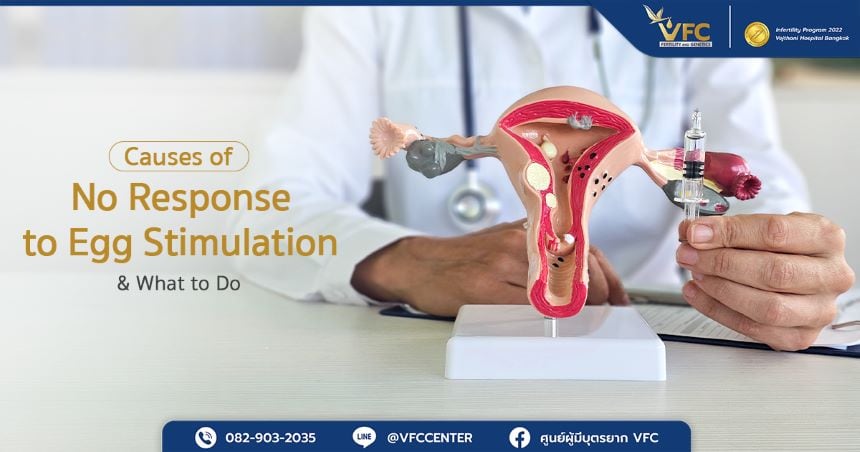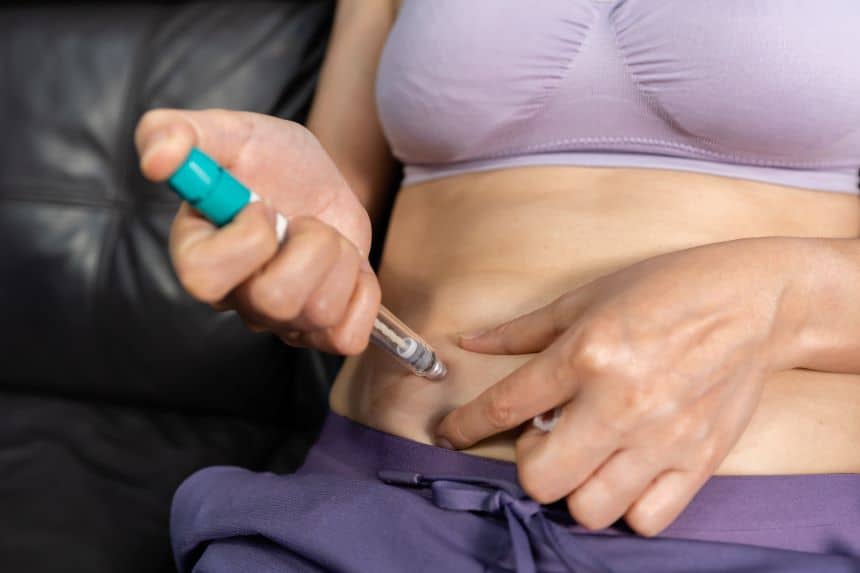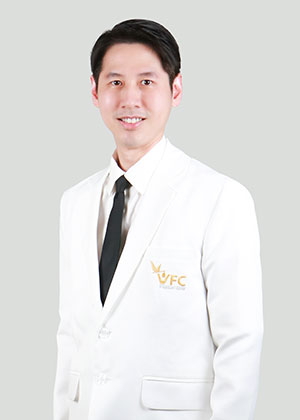
No response to egg stimulation in IVF or ICSI can be caused by nutrient deficiencies, oxidative stress, PCOS, or premature ovarian insufficiency. To improve outcomes, doctors may adjust hormone protocols, use PRP therapy, or treat underlying conditions. Lifestyle changes like a nutrient-rich diet, exercise, and stress management also play a key role in supporting ovarian response and improving pregnancy chances.
Egg stimulation is one of the most important steps in assisted reproductive treatments such as IVF and ICSI. The goal is to stimulate the ovaries to produce eggs that are ready for fertilization. However, in some cases, there is no response to egg stimulation, or the retrieved eggs may not reach the desired quality. Understanding the causes of ovarian non-responsiveness can help couples make informed decisions about appropriate treatments, ultimately increasing their chances of a successful pregnancy.
Understanding the Egg Stimulation Process
Egg stimulation is a medical process that uses hormonal medication to encourage the ovaries to produce eggs suitable for IVF or ICSI. Normally, a woman ovulates once per menstrual cycle. However, during IVF or ICSI, multiple eggs must be produced within a specific timeframe to increase the chances of pregnancy. The process typically involves the following steps:
- Starting with hormonal medication such as FSH (Follicle Stimulating Hormone) and LH (Luteinizing Hormone), given either by injection or oral medication, to stimulate the growth of multiple eggs in the ovaries at the same time.
- During this period, the doctor monitors progress through regular ultrasounds and blood tests to assess ovarian response and adjust the medication dosage as needed.
- Continued stimulation usually lasts about 8–12 days, depending on each individual’s response.
- Once the eggs reach the appropriate size, the doctor administers hCG (Human Chorionic Gonadotropin) to help the eggs mature fully before proceeding to the egg retrieval stage.
What Causes Poor Egg Growth?
Experiencing no response to egg stimulation is a common challenge in infertility treatments. The main causes include:
Insufficient Nutrient Intake
The growth of healthy eggs requires essential nutrients such as protein, vitamin D, folate, and antioxidants. A lack of these nutrients can result in poor egg development. Therefore, women undergoing stimulation should follow a balanced diet and avoid extreme dieting or fasting, as these practices can lead to nutrient deficiencies that hinder egg growth.
Oxidative Stress Damages Egg Cells
Free radicals can be produced by many factors, including pollution, smoking, alcohol consumption, stress, and even natural metabolic processes. When free radicals accumulate excessively, they damage cells throughout the body, including egg cells, which may deteriorate in quality or be destroyed before fully maturing.
PCOS or Chronic Anovulation
Polycystic Ovary Syndrome (PCOS) is caused by hormonal imbalances that prevent normal ovulation. As a result, the ovaries may produce immature or small eggs that fail to grow properly. PCOS is one of the most common causes of infertility in women.
Premature Ovarian Insufficiency
Premature Ovarian Insufficiency (POI) occurs when the ovaries stop functioning before the age of 40. This condition reduces the production of estrogen and progesterone, leading to a decreased ovarian reserve and fewer eggs available for stimulation.

Solutions for Poor Egg Growth
When there is no response to egg stimulation or eggs do not mature as expected, doctors will consider treatment options tailored to each individual’s condition to maximize pregnancy chances.
Adjusting the Stimulation Protocol
If there is no response to egg stimulation, doctors may change the type of hormone medication, increase or reduce the dosage, or use a different stimulation protocol. These adjustments help the ovaries respond more effectively.
Treating Premature Ovarian Insufficiency
For women diagnosed with premature ovarian insufficiency, treatment often includes hormone replacement therapy to maintain balance in the body. In cases where stimulation does not work, donor eggs may be considered. Some patients may also benefit from DHEA (Dehydroepiandrosterone) or testosterone, though these must only be used under close medical supervision.
Ovulation Induction for PCOS Patients
Women with PCOS require specific treatments. The first step is weight management, combined with Metformin to reduce insulin resistance. Clomiphene Citrate or Letrozole may then be prescribed to stimulate ovulation. If oral medications fail, hormone injections may be recommended. However, doctors must carefully monitor for Ovarian Hyperstimulation Syndrome (OHSS), a possible complication in PCOS patients.
Ovarian PRP Therapy
Platelet-rich plasma (PRP) injections are an emerging technique. PRP contains growth factors that help repair and regenerate ovarian cells, potentially restoring function and improving egg quality.
Lifestyle Practices to Support Egg Stimulation Success
Alongside medical treatment, self-care plays an important role in supporting ovarian health and boosting pregnancy chances. Recommended practices include:
Eat a Balanced, Nutrient-Rich Diet
Consume vegetables, fruits, whole grains, lean proteins, and healthy fats. Antioxidant-rich foods such as vitamin C, vitamin E, beta-carotene, selenium, and zinc help protect egg cells, while omega-3 fatty acids support hormone regulation.
Exercise Regularly
Engaging in activities like brisk walking, yoga, swimming, or cycling improves blood circulation, strengthens the body, and benefits reproductive health.
Manage Stress Effectively
Stress can disrupt hormone balance and reproductive function. Practices such as meditation, yoga, listening to music, or spending time with loved ones help create a supportive environment for conception.
By combining appropriate medical treatment with lifestyle adjustments, couples undergoing IVF or ICSI can increase their chances of achieving a healthy pregnancy.
For women preparing for egg and sperm freezing and seeking more information about the egg retrieval process, VFC Center offers comprehensive guidance and care from a team of fertility specialists.
Article by: Dr. Worawat Siripoon
For inquiries or appointments, please contact:
VFC Center – V-Fertility Center
Hotline: 082-903-2035
LINE Official: @vfccenter

OBSTETRICS AND GYNAECOLOGY-REPRODUCTIVE MEDICINE





No Comments
Sorry, the comment form is closed at this time.